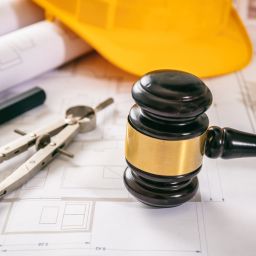Proper documentation in construction projects is absolutely essential. Beyond merely tracking progress, it provides legal protection, ensures clarity, and fosters smoother project delivery. Without accurate records—from contracts and change orders to daily logs and lien notices—stakeholders may face confusing disputes or even lose legal rights.
Legal Foundations and Risk Management
Construction in Arizona falls under specific legal frameworks. For instance, contractor licensing, mechanic’s lien rights, delay claims, and defect disputes all rely on clear, timely documentation. Arizona’s laws require contractors to provide a Preliminary 20‑Day Notice to preserve lien rights, as well as detailed records of payments and completion dates. In litigation or arbitration, this documentation often determines the outcome. In fact, documentation is frequently the difference between a successful mechanic’s lien or claim, and losing that right altogether.
When disputes arise—such as defects, delays, or scope disagreements—the quality and completeness of documentation influence negotiations, mediation, and litigation outcomes. Degnan Horne frequently handles construction‑law disputes in Arizona, advising clients on remedying breaches, defending mechanic’s liens, and resolving contractor or scope disputes. Ultimately, well‑kept documentation shows good faith, accountability, and legal compliance.
Key Types of Construction Documentation
Contracts and Scope Documents
Clearly drafted contracts with well‑defined scopes, deliverables, timelines, payment terms, and dispute resolution procedures are foundational. Degnan Horne emphasizes the importance of defining roles, payment milestones, and change procedures to reduce misunderstandings.
Change Orders and Amendments
Whenever the scope shifts—design modifications, extra work, or delays—formal change orders should be created and signed. Recording these ensures that payment and deadlines stay aligned with actual work performed.
Daily Logs and Progress Reports
Daily or weekly logs that note work completed, weather conditions, workforce counts, material deliveries, and site issues help verify performance and support delay or defect claims if needed.
Payment Records and Invoices
Accurate invoices, proof of payment, lien waivers, and schedules are vital. In Arizona, failure to issue preliminary notices or file lien claims within strict statutory deadlines (e.g., 120 days for filing a lien, lawsuit within six months) can invalidate your lien rights.
Communications and Correspondence
Documenting emails, letters, meeting minutes, and phone logs preserves a chain of communication in case of disputes. These records clarify when instructions were given or issues raised.
Compliance and Licensing Paperwork
For contractors, maintaining proof of licensing, registrations, insurance, inspections, and regulatory filings protects against administrative sanctions and supports legal defenses.
Mechanic’s Lien Notices and Filings
Proper filing of preliminary notices, lien statements, and enforcement actions is strictly regulated by Arizona law. Degnan Horne provides detailed assistance in preparing, filing, and enforcing mechanic’s liens for contractors and suppliers.
Benefits of Keeping Strong Records
-
Defends Your Rights: Solid documentation supports lien rights, delay claims, and change order enforcement.
-
Reduces Disputes: In disputed scopes, payments, or delays, records provide an agreed‑upon factual foundation.
-
Supports Regulatory Compliance: Proper licenses, notices, and risk prevention documentation reduce exposure to ROC investigations or fines.
-
Strengthens Your Position in Mediation or Litigation: Degnan Horne regularly resolves disputes via mediation, arbitration, or litigation—well‑organized documentation significantly strengthens their clients’ cases.
When to Involve an Attorney
From the inception of a construction project, legal counsel can help ensure documentation is designed to safeguard your interests:
-
Contract Review and Drafting: Attorneys can tailor contracts to include essential clauses—scope definition, payment terms, change procedures, and dispute resolution options.
-
Notices and Lien Claims: Legal guidance helps preserve lien rights by ensuring notices are issued correctly and filings are timely and accurate.
-
Dispute Resolution: If conflicts arise, a well‑prepared attorney can use documented evidence to negotiate, mediate, or litigate disputes effectively.
-
License Defense and Regulatory Support: If complaints threaten a contractor’s license, comprehensive documentation provides a solid defense.
Practical Steps to Improve Documentation
Begin by establishing standardized forms and processes:
-
Create templates for contracts, change orders, daily logs, and communications.
-
Train staff to keep daily records and retain emails and correspondence.
-
Establish a filing system (digital or physical) to store documentation chronologically.
-
Review documentation periodically, ensuring all notices and deadlines (especially lien‑related) are tracked.
-
Retain legal counsel early—Degnan Horne can assist in structuring documentation strategies from the start.
Protecting Your Construction Projects with Proper Documentation
With strong documentation practices in place, project stakeholders—owners, contractors, subcontractors, and developers—enjoy greater clarity, fewer misunderstandings, and enhanced legal protection. When disputes emerge, having detailed records gives you confidence and power. And in Arizona’s legal landscape, that level of preparedness can make all the difference.
If you’re starting a new construction project, facing a payment issue, or concerned about lien rights or a possible dispute, Degnan Horne stands ready to help. The firm’s deep experience in Arizona construction law—including contract drafting, mechanic’s lien filings, dispute resolution, and license defense—means you can rely on strategic legal guidance at every stage.
Contact Degnan Horne today to discuss how proper documentation and legal guidance can secure your interests in your next construction endeavor.

















